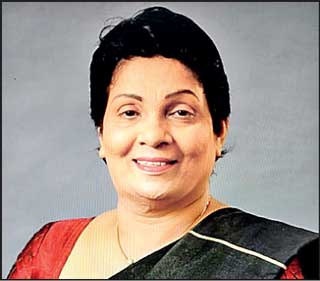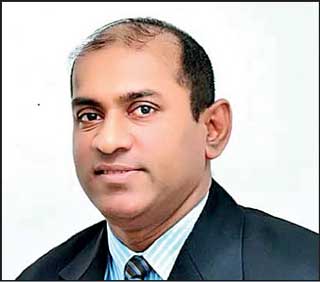Sunday Feb 22, 2026
Sunday Feb 22, 2026
Friday, 31 March 2023 00:20 - - {{hitsCtrl.values.hits}}
 |
| Chairperson Keasila Jayawardena |
 |
| GM/CEO Sujith Fernando |
Sri Lanka Savings Bank said that it demonstrated resilience and agility in a challenging year amidst the unprecedented economic crisis by achieving a growth in Profit After Tax (PAT) of 74% to Rs. 445.1 million for the year ended 31 December 2022 compared to Rs. 255.1 million recorded a year earlier.
Chairperson Keasila Jayawardena said: “Amidst tremendous social and economic challenges the bank has been able to sustain earnings and has shown its financial agility and strength.”
She thanked the Board of Directors for its leadership and the staff of Sri Lanka Savings Bank and also the parent of Sri Lanka Savings Bank, National Savings Bank for the support given to achieve these results.
Commenting on the results, GM/CEO Sujith Fernando said, “Efficient utilisation of assets, prudent risk management and effective command over costs have enabled the bank to achieve robust results amidst severe social and economic challenges, high inflation, overall contraction of the economy and restrictions placed on the bank due to proposed merger with its parent, National Savings Bank.”
He said the bank’s interest income increased by 86% to Rs. 1,119.7 million as a result of improved yields from investments and loan portfolio. The bank was able to get the advantage of elevated interest rates and re-priced most of its treasury assets which contributed a significant portion to the interest income. The net interest income increased by 99%. The prudent management of interest earning assets and market risks led to an increase in Net Interest Margin by 7.66% to 14.98%.
The bank’s Return on Assets after tax improved to 5.19% in 2022 from 2.84% in the year 2021. The Return on Equity after tax increased to 6.40% from 3.83% a year ago. Amidst severe strain on businesses and SMEs, the bank took a prudent approach in impairing assets and due to this the impairment increased by Rs. 149 million compared to year 2021.
The bank’s operating expenses increased by 25% year on year to Rs. 373.1 million amidst higher personnel expenses, depreciation of Rupee and overall price increases due to inflation. Compared to the year 2021, personnel expenses grew by 28% in 2022 mainly due to increase in cost of living allowance. Other expenses increased moderately only by 16% due to stringent cost control measures.
Due to the proposed merger with National Savings Bank, the Central Bank of Sri Lanka has placed restrictions on lending and deposit mobilisation on Sri Lanka Savings Bank since January 2021. Due to this reason the bank has witnessed a negative rowth in its portfolio and assets. However, this has enabled the bank to be highly liquid and to have higher capital adequacy ratios.
The bank has been the pioneer in lending to micro finance institutions and giving technical assistance to them. However, now most of these micro finance institutions are self-sufficient in funding. The bank also granted moratoriums to all clients who requested them carrying out the social responsibility towards clients. If the proposed merger goes through the SLSB will be absorbed by National Savings Bank.